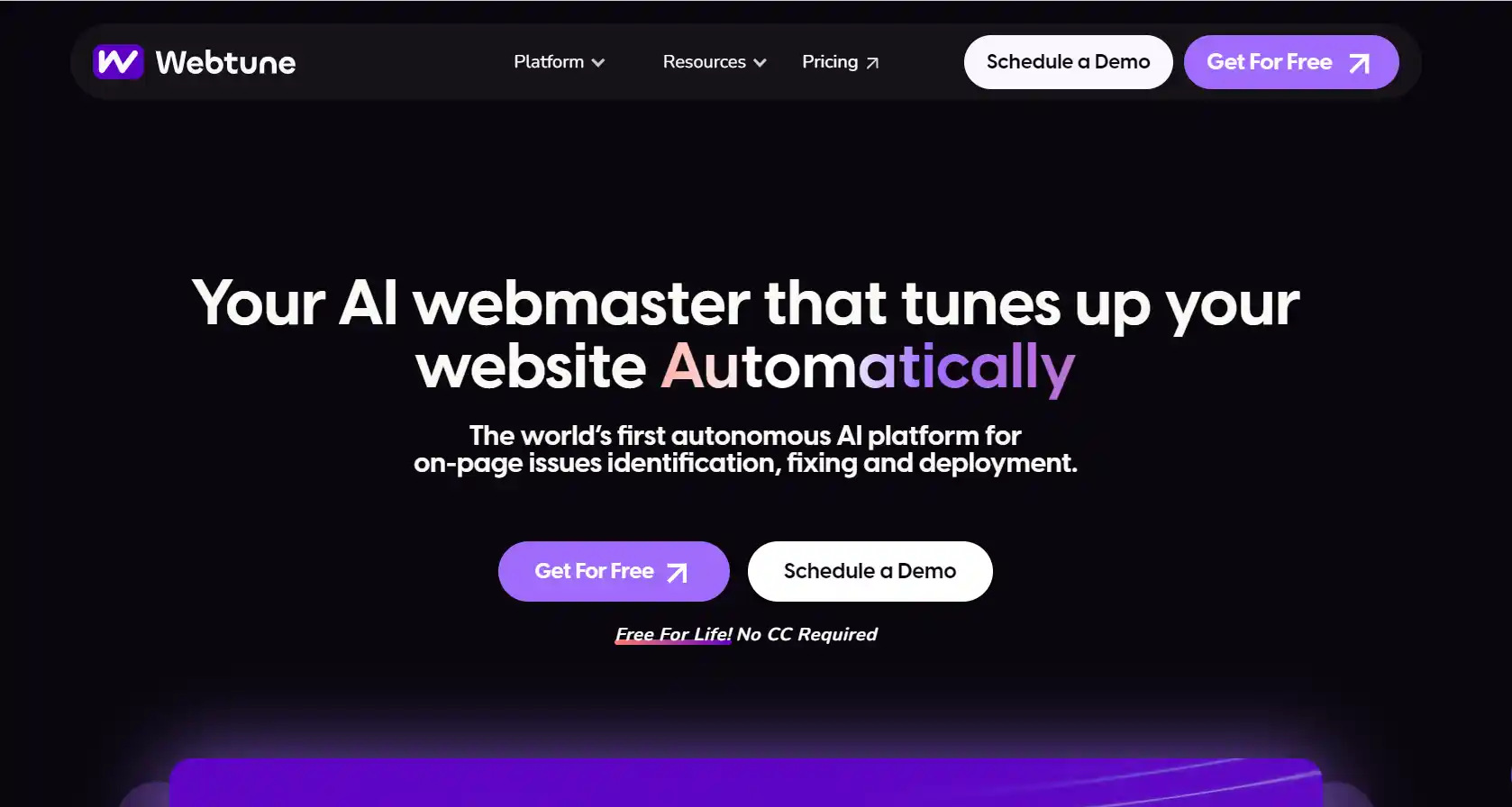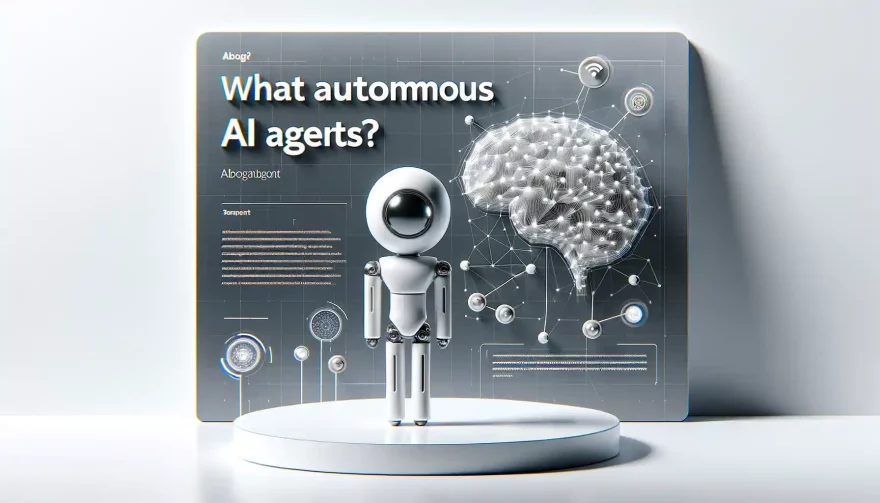Autonomous AI agents represent a significant leap forward in the field of artificial intelligence, offering a glimpse into a future where intelligent software programs can independently perform tasks, learn from their experiences, and adapt to new challenges without constant human oversight.
Here’s a comprehensive overview of autonomous AI agents, their capabilities, applications, and the ethical considerations they entail, drawn from a synthesis of various sources.
What are Autonomous AI agents?
Autonomous AI agents are advanced software programs that can operate independently to achieve specific objectives. Powered by sophisticated artificial intelligence technologies like GPT-4, these agents can understand objectives, create and execute tasks, adapt their priorities based on outcomes, and learn from their actions.
According to this paper, an artificial agent is a “physical or virtual entity that can act, perceive its environment (in a partial way), communicate with other agents, is autonomous, and has skills to achieve its goals and tendencies.”
These agents are crucial for automating repetitive tasks, providing 24/7 availability without the limitations of human fatigue, improving accuracy and decision-making through data analysis, and adapting to new information and environments.
Their potential applications span across various industries, including healthcare, transportation, manufacturing, customer service, and education, promising to revolutionize these fields by enhancing efficiency, safety, and productivity.
Research and development in this field are rapidly evolving, with institutions like Caltech leading initiatives to explore and expand the capabilities of autonomous systems in transportation, medicine, scientific research, and more.
These efforts highlight the potential of AI to undertake tasks traditionally performed by humans, potentially more efficiently and safely, while also acknowledging the importance of human oversight in “humans in the loop” systems to ensure alignment with human values and safety concerns.
Understanding and addressing the complexities of autonomous AI agents is crucial for harnessing their full potential and navigating the ethical, technical, and societal implications of their widespread adoption.
How do autonomous AI agents work?
AI autonomous agents operate independently, achieving objectives through self-directed instructions that run in loops, producing actions at each iteration.
These agents can handle various digital tasks once given a specific objective, such as content creation, personal assistant duties, personal finance management, research, data analysis, and accessing large language models like GPT.
The operation of autonomous AI agents involves several critical elements:
- Knowledge: Agents must have a comprehensive understanding of their training data and the ability to gather and interpret data from diverse sources.
- Memory: They need the capability to recall past experiences and learn from new data.
- Learning: This is facilitated through techniques like reinforcement learning, which allows agents to refine their strategies and improve decision-making based on feedback.
- Decision making: Agents analyze data, recall experiences, weigh options, and select actions that align with the user’s goals, requiring detailed planning before execution.
Different types of autonomous agents exist, ranging from reactive machines that respond to specific situations without learning from past experiences to self-aware agents capable of understanding their environment and reflecting on their capabilities and limitations.
What is an example of autonomous AI?

WebTune represents an example of autonomous AI designed to streamline website management and SEO optimization. This platform is the world’s first autonomous AI for identifying, fixing, and deploying solutions to on-page website issues automatically. It’s built by the team behind Scalenut, known for its AI-SEO platform prowess. WebTune operates in three main areas:
- Detection AI: It detects on-page issues in real time, covering aspects such as meta tags, canonical tags, external links, and alt-text, ensuring comprehensive website monitoring.
- Resolution AI: Offers AI-powered solutions for all detected on-page issues. This feature is powered by GPT, supports an unlimited number of issues, and provides a one-click resolution with an approval workflow to ensure accuracy and relevance.
- Deployment AI: Facilitates auto-deployment at scale for all resolved issues. It offers one-click deployment, the ability to deploy at scale, and the option to revert changes, making it adaptable to any CMS.
WebTune is designed to save significant amounts of time and money on website maintenance by providing real-time monitoring and unlimited optimization capabilities without the need for developers or coding. It works with any CMS, allowing for a flexible and adaptable solution for website optimization.
What is the difference between automated agents and autonomous agents?
Automated agents operate based on predefined rules and scripts to perform tasks, requiring specific instructions from humans.
In contrast, autonomous agents have the ability to learn from their environment and make decisions independently, often using AI to adapt their actions based on new data, without needing direct human intervention.
This key difference means autonomous agents can handle complex, changing environments and make decisions in real time, while automated agents typically cannot.
Capabilities and applications
These AI agents are capable of a wide range of digital tasks. They can:
- Manage social media accounts
- Make market investments
- Cancel your subscriptions
- Generate creative content, and even
- Control aspects of your computer with permission.
Their abilities are extended by leveraging Large Language Models (LLMs) such as Gemini, Grok-1, and GPT-4, enabling them to analyze data, summarize information, and solve complex problems.
Projects and implementations
Interesting projects like Webtune, BabyAGI, and AutoGPT showcase the diversity of applications for autonomous agents. From organizing events autonomously to ordering pizza via the internet, these agents demonstrate the potential to significantly impact how we interact with digital environments.
Ethical and societal implications
The rise of autonomous AI agents brings forth important ethical considerations.
Issues such as:
- Decision-making: Who is responsible for the agent’s choices and their consequences? How are ethical principles embedded in their programming?
- Transparency and explainability: Can we understand how the agent reaches its decisions, especially when they may be based on complex algorithms?
- Fairness and bias: How do we avoid the agent becoming biased by the data it’s trained on, leading to discriminatory or unfair outcomes?
- Privacy and security: How do we ensure the agent protects personal data and operates securely?
- Human-machine interaction: How should humans interact with and trust these agents, especially in high-stakes situations?
- Job displacement due to automation
Future predictions
Autonomous AI agents are expected to see increased adoption across various industries, enhancing intelligence and capabilities. They promise to improve decision-making, adaptability, and even creativity in fields ranging from healthcare to customer service.
However, alongside their potential benefits, autonomous AI agents also pose challenges. These include:
- Ethical dilemmas
- Security risks
- Data privacy issues
- The need for explainability and interpretability in AI decision-making processes
Conclusion
As we stand on the cusp of a new era in artificial intelligence, autonomous AI agents offer both immense possibilities and significant challenges. Their development and integration into society demand a balanced approach, one that maximizes their benefits while addressing the ethical and practical concerns they raise.
The journey towards fully autonomous agents is filled with both opportunities and obstacles, highlighting the need for continued research, thoughtful policy-making, and ethical considerations to ensure that the advancements in AI contribute positively to society.


